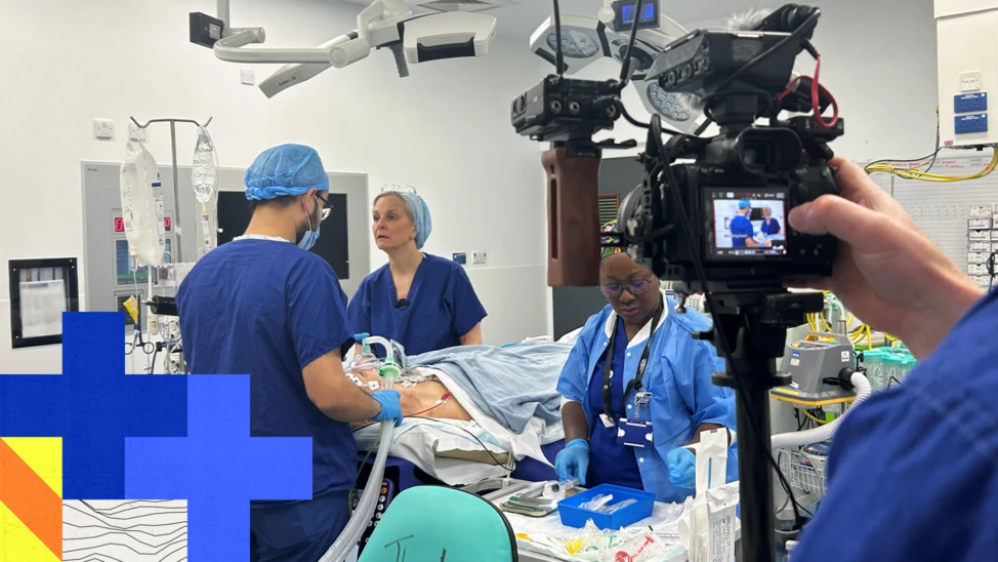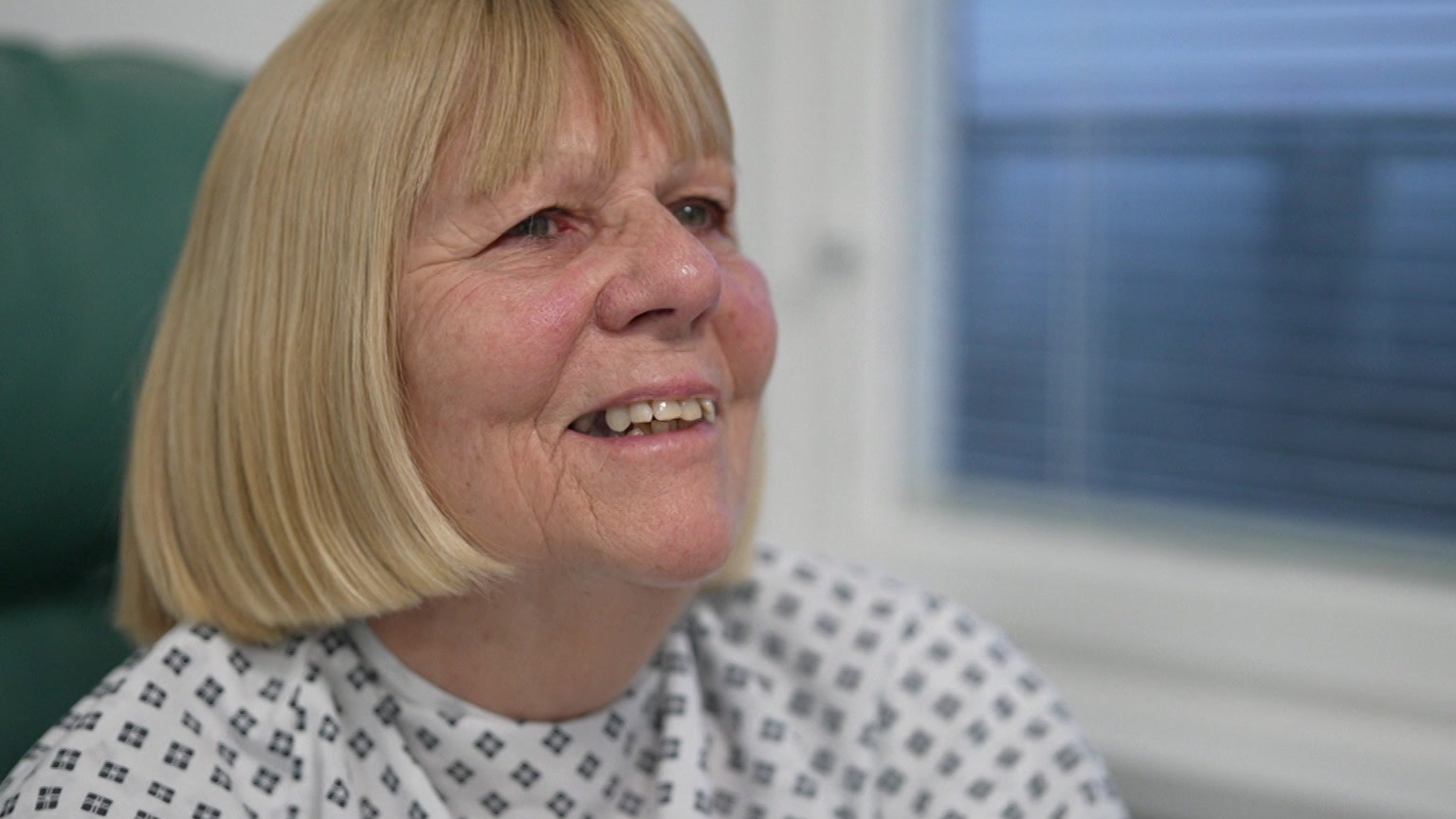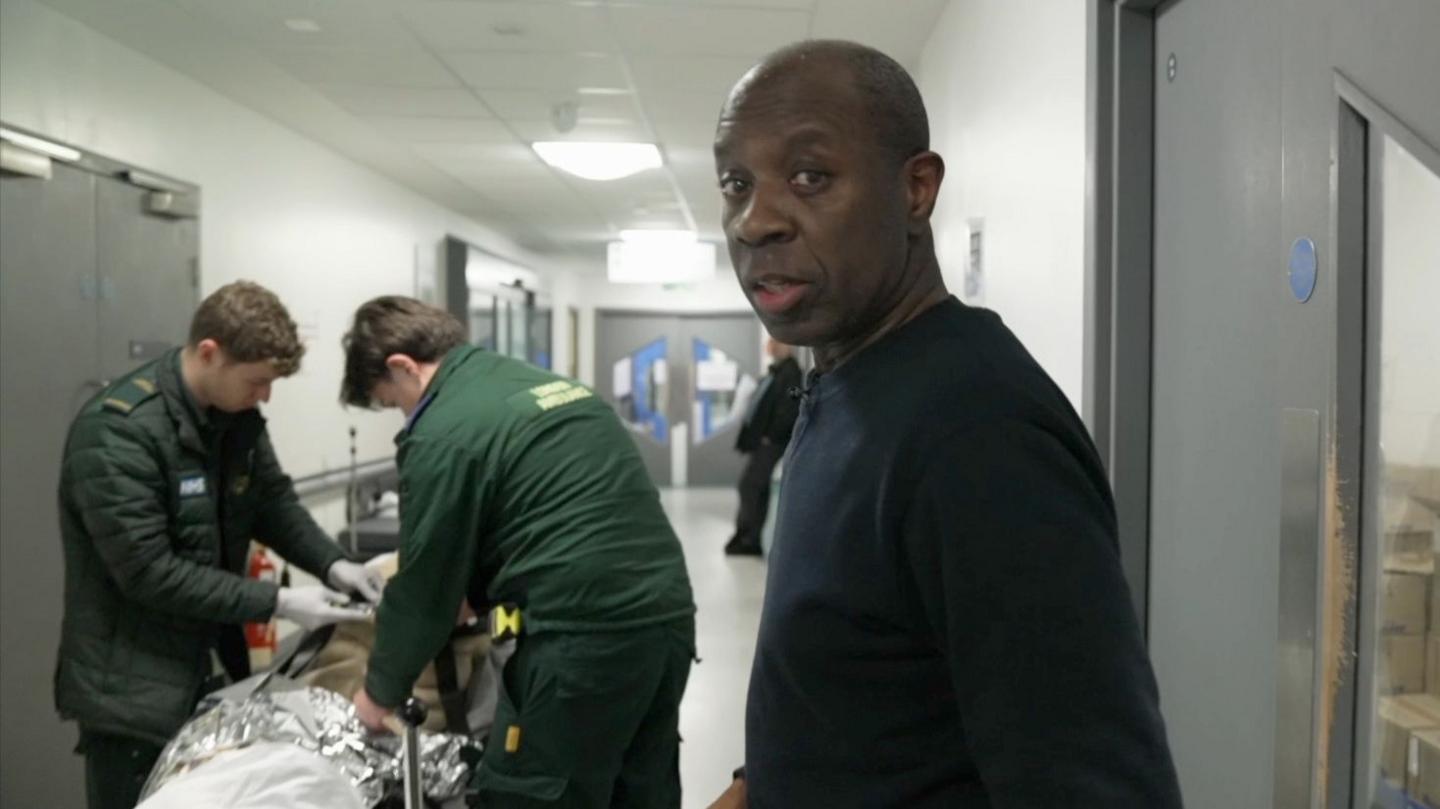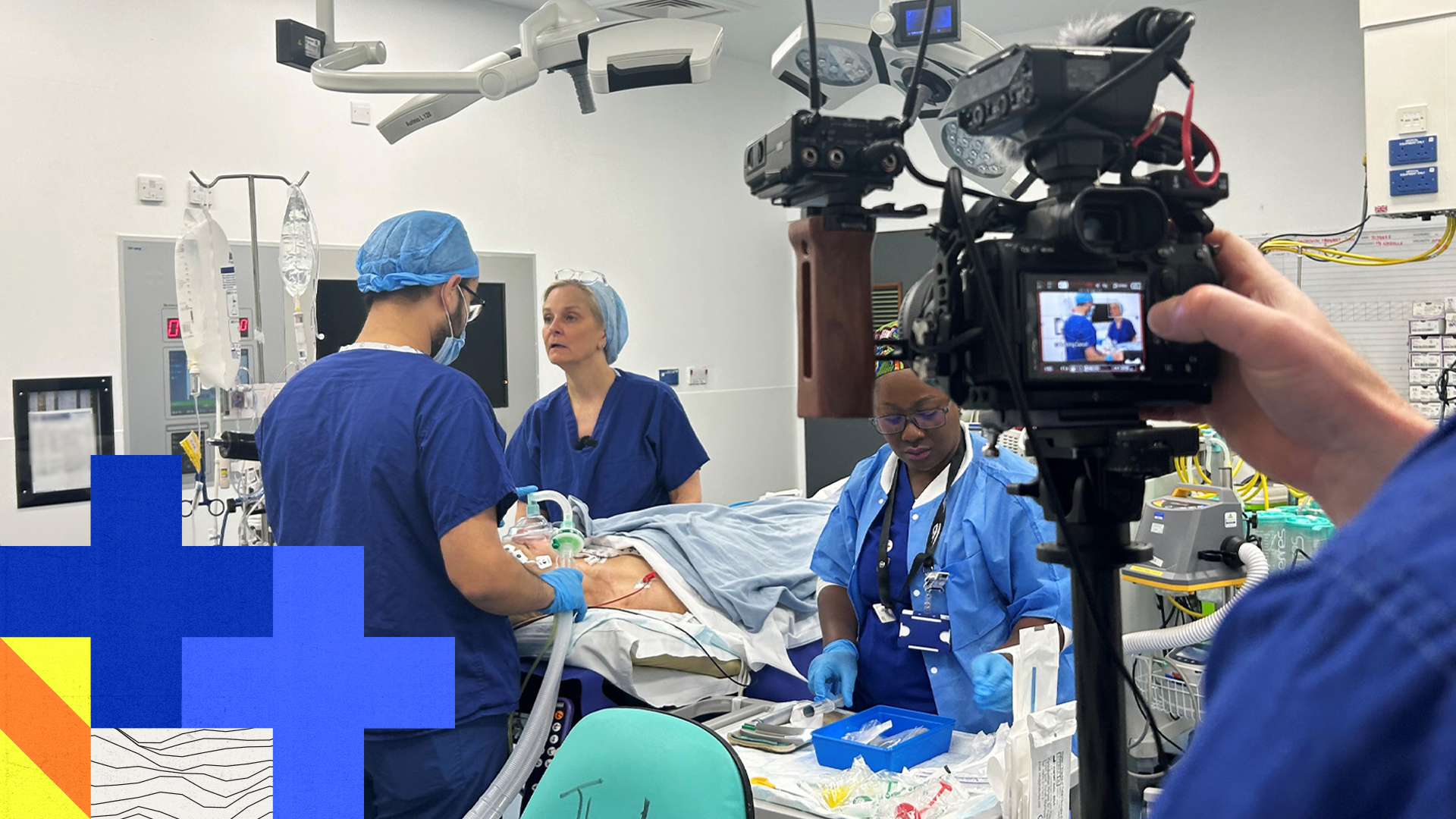Inside the Royal Free - what it tells us about the NHS

- Published
The BBC has been reporting live from the Royal Free Hospital in London to illustrate the pressures facing the health service this winter.
By 10am the A&E unit was full and within hours the hospital had to declare it had reached alert level four, signifying to NHS central command it was under huge strain.
Some patients had to be treated in corridors and patients needing to be admitted were sent to wait outside wards on trolleys and chairs to free up space in A&E.
Staff told the BBC they were just about coping – although they never had to take the ultimate step of diverting ambulances to nearby hospitals.
This, though, is not unusual. Hospitals up-and-down the country have found themselves in this position regularly this winter.
But beyond the busy, stressed A&E unit, there were plenty of other stories to tell.
This is what a day in a London hospital tells us about the NHS.
Staff feel system working against them
Frailty consultant Dr Martin Glasser looks after a 32-bed ward.
It was packed when the BBC visited – not one bed was empty. But he said close to half of the patients did not need to be there.
"The patients could be out either in a care home, or at home with care if the services they needed were available.
"It makes us feel really demoralised actually. We're trying our very best in a system that often feels like it's failing and working against us.
"It's not fair to the people stuck who actually want to be home and will be better off there - hospitals are great places to be when you are ill, when you are not ill they are pretty horrible."
This, of course, is not unique to the Royal Free. Across the NHS, one in seven beds are occupied by patients who are ready to be discharged – and on Thursday it was revealed the numbers had got their highest level of winter.
Ageing equipment worsens waits
The Royal Free has two radiotherapy machines to help treat cancer patients. Both are nearly a decade old, which is the upper limit of how long they should be used for.
Radiotherapy service manager Clare Hartill says: "We need new machines.
"Old machines are 50% less efficient - so with new machines we could treat more people and then they would wait less time for their cancer treatment."
This is a common complaint across the NHS.
In England, there is a backlog of £13.8bn for buildings and equipment that needs upgrading and replacing. That is double what is was a decade ago.
Patients in 30s having heart attacks
As one of London's eight specialist heart attack centres, the Royal Free gets patients from across the north of the capital.
Most patients they see are in their 50s, 60s and 70s, but sometimes they will get people in their 30s brought in by paramedics, says senior charge nurse Rui Tinoco.
"It is quite shocking to see people that young," he says. "Lifestyle is the big factor with these cases. Many of us working here are in our 30s, so it is quite upsetting to see."
In the cancer department, staff also highlight how lifestyles are causing illness.
About 40% of cancers are estimated to be related to diet, alcohol, a lack of activity and smoking.
"We are seeing a rising number of referrals," says lead cancer nurse Jemma O'Reilly. "There are a variety of factors – the ageing population, genetics and cancer recurring, but the way we live is definitely a factor."
Operation backlog could take 10 years to clear
The government has pledged the NHS will be back to hitting its 18-week target for routine treatments by the end of this parliament. But doctors here reckon it will take at least twice as long.
One consultant surgeon told the BBC it would take "at least a decade" to clear.
This is telling. The wider NHS trust which Royal Free is part of has managed to increase the number of operations it carries out by 18% over the past year.
Key to that has been the barn theatre at the trust’s Chase Farm Hospital, part of a £200m refurbishment carried out before the pandemic.
It allows up to four operations can take place simultaneously in the same room, with senior consultants overseeing multiple patients.
Medical director Dr Ash Saini says it is helping the hospital to increase productivity.
"We're working really hard to try and get our waiting lists down," he says. "But it's a slow process."
Amazing things do happen

Margaret Georgiou is being treated for pancreatic cancer
Margaret Georgiou, 72, went to see her GP in early December suffering from bloating and jaundice. She was referred to a specialist and pancreatic cancer was diagnosed.
The majority of cases – around 85% - cannot be treated.
But doctors think Margaret's cancer had been caught early so she underwent what is called a Whipple procedure three days ago.
She had half her pancreas, bile duct and gall bladder removed, along with part of her gut and stomach.
Mid operation they had to pause after a lesion was found on her liver – but after a quick examination it was found to be benign and the surgery could continue.
It was a complex operation that lasted eight hours. "It was fraught with risks," says her surgeon David Nasralla. "But it went as well as it could."
She has a long recovery ahead of her and will have to take medication every time she eats.
"For a significant minority Whipple procedure can be curative. That's why we put patients through such complex surgery," adds Mr Nasralla.
- Published13 February

- Published13 February
